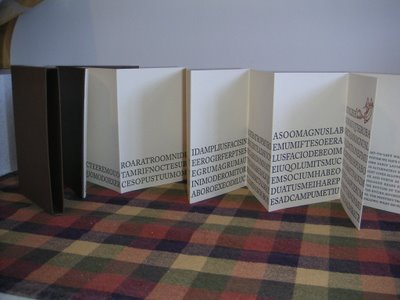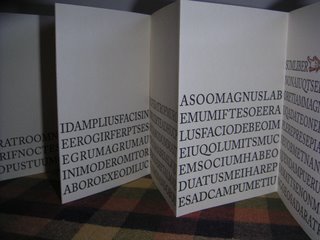
"To acquire another language is to acquire another soul."
Poets know this best, since they notice immediately the possibilities of expression that differ from tongue to tongue. The French expression "tant pis" is barely translatable into English as the old-fashioned phrase, "So much the worse for you!" But it has a saltiness to it that I love.
So I anticipate pleasure in reading the work of poets who have multiple tongues: Paul Celan, Clayton Eshleman, Galway Kinnell. And this winter, Bruce Weigl.
Weigl, who lives in Oberlin, Ohio, is almost as well known as a memoirist (
The Circle of Hanh) as for his poetry. He's also written essays on Dave Smith, Charles Simic, and James Dickey. Significantly, working with co-translators, he has developed translations of poetry from the Vietnamese and Romanian.
In
DECLENSION IN THE VILLAGE OF CHUNG LUONG, Weigl walks back to the war that shaped his generation of Americans, and writes as one who also walked in Vietnam, in military service. He pares description to "the shriven lyric," as in "Say Good-Bye":
Say River. Say bloody current. Say not enough rice.
Say mother and father. Say village bell calling.
Say village drum calling. Say music through the trees
from someone's lonely radio. Say mango
sliced into the woman's open hands.
Say rice, steaming just in time. Say paths
worn by the naked feet of lovers. Say lovers
who must hide in the mango groves,
even to say good-bye.
And when this tendril winds into more detail, as in "Con Gai Bo" when Weigle offers us "I wanted to say that you were my river, / or that you were my flower, or that you were my yellow bird," we find the black eyes of another place and music. But still Wiegl hides direct narrative behind one hand, as though he can't quite bear to open the window on the story, to the prying eyes of strangers.
There are also abrupt twitches of the mouth in these poems, where the adolescent soldier's cynicism surfs into the present: "Something splendid might happen. Whatever." The same twitch appears in the piece "My Award," where the finale reports, "When I dodged the snipers, / I would seem to float above the stage."
I itch for the sound of Vietnamese words, and wish Weigl had allowed them into these poems, since I am confident that he has them -- that other soul, peeping from the curtains that drift across old, bad memories. One piece probes treatment of a prisoner of war -- is this in Vietnam in the '60s, or in Abu Ghraib so recently? Weigl dips more obviously into the nearly present time with "Iraq Drifting, January 2003," and into what sound like recent trips to 'Nam ; then he opens delicate love poems that walk in the past again, like "On Hai Phong":
He said that the flower of her sex
opened when he said her name, his lips
pressed against her lotus lips.
The conclusion to the poem shook me: "My / friend said that when the lights went out, she put her / fingers inside his mouth."
There are so many mysteries in the narratives that Weigl unfurls, but none in the images, scented and particular, spoken from that second tongue in conversation with the first one. Or even deeply kissing, tongue to tongue. It's the kind of collection that nurtures sparks into flames that way.
Last autumn, Dave and I listened intently to Brian Turner talking about "his" war (Turner has called himself an "embedded poet" in the invasion and occupation of Iraq). At the same time, we pondered Martín Espada's advice to Turner and others returning fro Iraq: Seek out the Vietnam veterans, who've had time to work their way through the memories and the shards still in their flesh and souls.
Reading Weigl, I want to take this movement in the other direction: to read Weigl, then
Doug Anderson (THE MOON REFLECTED FIRE -- Vietnam), and
Turner (HERE, BULLET), and at last Iraqi poet
Dunya Mikhail (THE WAR WORKS HARD), a woman of three tongues (Arabic, Aramaic, English). I dream that we may not only understand the wars in our own hearts this way, but also, just maybe, see pathways away from repeating them.
***
N.B.: Weigl with this book won a 2006 Lannan Fellowship, and the following is from the Lannan Foundation web site:
Bruce Weigl has produced numerous volumes of poetry, three collections of essays, and a noted memoir,
The Circle of Hanh, as well as translating and publishing books of Vietnamese poetry. His most recent poetry collection is
Declension in the Village of Chung Luong (2006, Ausable Press). Weigl was sent to Vietnam six months after graduating from high school in Lorain, Ohio, and his experiences in that war and on his return to the U.S., combined with his enormous poetic talent nurtured at Oberlin College, created “an eloquent spokesman for an entire generation of Americans whose lives were broken by the war and a country whose moral confusion desperately needed addressing.” After teaching for many years at Penn State, he returned in 1998 to Lorain, Ohio where he holds the position of Distinguished Visiting Writer at Lorain County Community College.
His awards include the Paterson Poetry Prize, Fellowships from the National Endowment for the Arts and the Yaddo Foundation, two Pushcart Prizes, and the Poet’s Prize from the Academy of American Poets. His poetry titles include
The Monkey Wars (University of Georgia, 1985);
The Song of Napalm (Grove, 1988);
What Saves Us (Triquarterly, 1992);
Sweet Lorain (Triquarterly, 1996);
Archaeology of the Circle (Grove, 1999);
After the Others (Triquarterly, 1999);
The Unraveling Strangeness (Grove, 2002);
Declension in the Village of Chung Luong (Ausable, 2006).















